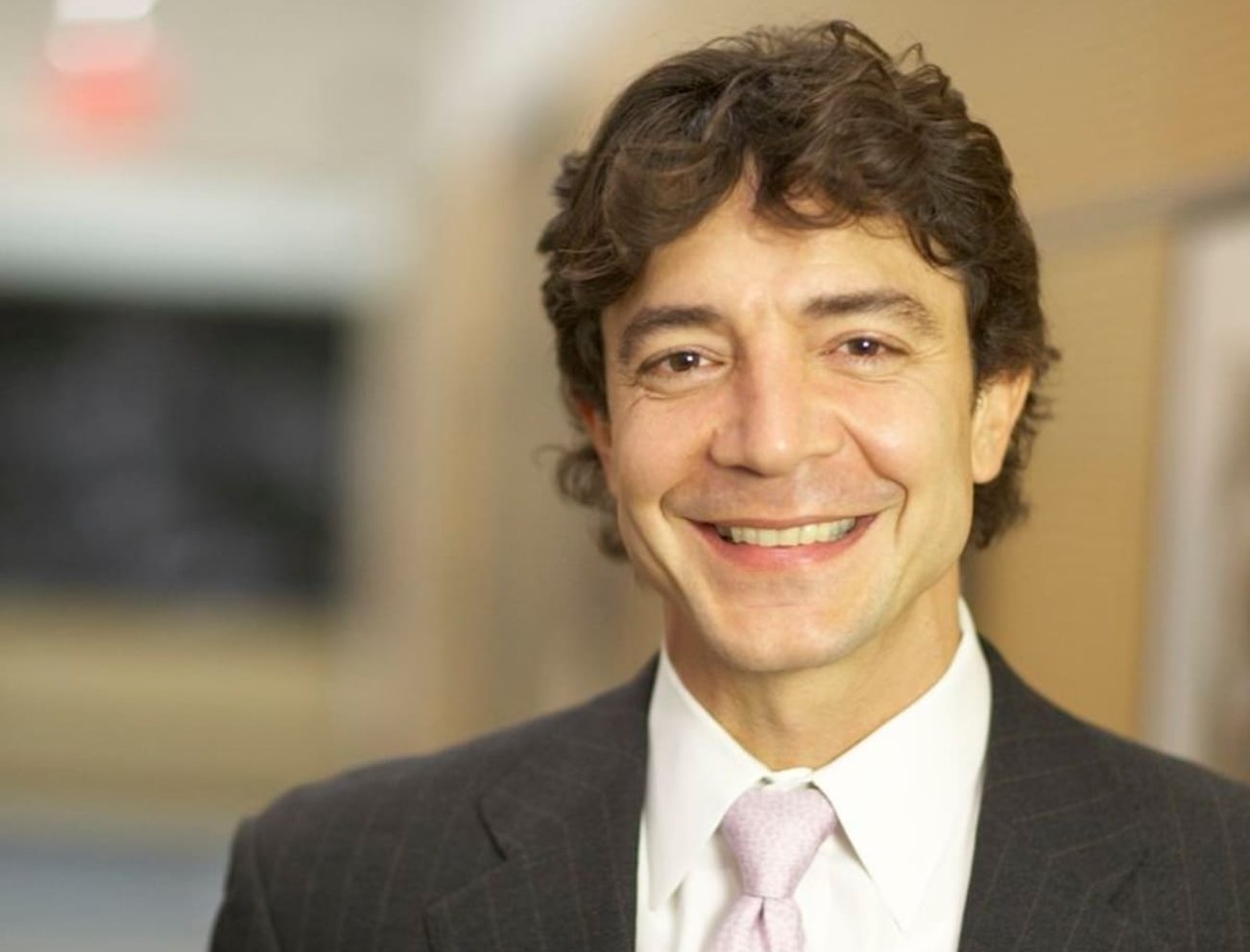That’s one of the first questions mesothelioma patients ask their doctors after learning of their diagnosis: “Is there a cure?”
Unfortunately, the answer is no. While remission and recurrence is common, there is no cure for mesothelioma — at least not right now.
Mesothelioma specialist Dr. Jacques Fontaine talks with Asbestos.com about the future of mesothelioma treatment.
But improvements to current cancer treatments, breakthroughs in clinical trials and a better understanding of the aggressive asbestos-related cancer are getting researchers closer to finding a cure.
What’s the proof? Survivors are living longer, healthier lives, despite the less than optimistic prognosis.
Current Treatments Fuel Mesothelioma Research
While chemotherapy, radiation and surgery remain the traditional and best treatments for mesothelioma, researchers are improving their efficacy and looking for new ways to perform these therapies.
As a result, surgeries are more precise; therapies are more exact; and chemotherapy and radiation are more effective.
Here are some examples of how researchers are refining these treatments:
-
Chemotherapy: The most effective chemotherapy treatment combines the FDA-approved drugs pemetrexed and cisplatin combination. Researchers are now looking at the possibility of adding bevacizumab (Avastin), a third chemotherapy drug, to the combination with the hope all three drugs will delay the cancer spread and increase overall survival rates.
-
Surgery: Extrapleural pneumonectomy, HIPEC and pleurectomy/decortication are major mesothelioma surgeries that can remove all visible cancer cells if the cancer is detected at an early stage. But researchers are evaluating if adding heated chemotherapy or cryotherapy (freezing of tumors) to certain surgical procedures will improve overall effectiveness.
-
Multimodal: A multimodal therapy approach that combines surgery with both chemotherapy and radiation has proven effective in many patients. Even patients who are not candidates for surgery have found chemotherapy combinations that can work for them.
This is not the death sentence it was 20 years ago. Long-term survival is possible. We now have the road map, and others have traveled the path, I remain optimistic that we can, in the next decade, put together the right combination of patient and treatment to affect a cure, which is our holy grail.”
– Dr. David Sugarbaker Thoracic Surgeon
Emerging Treatments for Mesothelioma
Immunotherapy
As one of the greatest medical advancements for the mesothelioma community, immunotherapy is sparking optimism with promising results in multiple clinical trials around the world. Patients and researchers are focused on the potential benefits of using your own immune system to combat aggressive cancers, including mesothelioma.
Keytruda, the immunotherapy drug responsible for thus far saving former President Jimmy Carter in 2015, is one of the most well-known immunotherapy drugs. The drug continues to show groundbreaking effectiveness in mesothelioma clinical trial participants.
Gene Therapy
Scientists continue to study the possibility of manipulating a patient’s genes to treat or prevent certain diseases. The goal of gene therapy is to directly repair problems caused by defective genes.
It [the cure] is out there somewhere now,” said thoracic surgeon Dr. Raja Flores of Mount Sinai Medical Center in New York.” We just have to start thinking outside the box more. We’ve got to come up with something that no one has put together yet. But it’s there.”
For pleural mesothelioma patients, gene therapy is very promising. Given the location of mesothelioma tumors, doctors can easily reach the pleural membrane to deliver genes, conduct biopsies and monitor treatment results.
As for peritoneal patients, surgeons can target mesothelioma tumor cells specifically, rather than all rapidly dividing cells in the body, using the suicide gene therapy technique. One of the most extensively studied genes in this procedure is the herpes simplex virus thymidine kinase (HSV-tk).
In other words, the cancer cells can be infected with a virus-associated enzyme that activates a drug (Ganciclovir), causing the infected cell to die. Therefore, the uptake of the infecting virus is considered “suicidal.”
In 1995, several researchers created a model demonstrating that HSV-tk could be an effective treatment for peritoneal mesothelioma. This study led to several gene therapies clinical trials for peritoneal patients.
While gene therapy does not currently offer a permanent cure for mesothelioma, it has shown promise in multiple clinical trials.
Get a Free Mesothelioma Guide
Learn about the latest treatment options and the search for a cure with a free mesothelioma guide.
Get Your Free Guide
Breakthroughs in Clinical Trials Bring Us Closer to a Cure
Dr. Tirrell Johnson discusses the most recent research topics involving mesothelioma.
Since traditional treatment options currently do not provide a cure for mesothelioma, researchers are tirelessly looking for other therapies.
Currently, the process for introducing a new asbestos cancer medication typically takes 12 to 15 years. To ensure patient safety, adequate time must be spent in each stage of the development process. This is where clinical trials come in.
It takes nearly seven years for a new medication to make it to the first phase of a clinical trial. From there, the medication goes through four phases of clinical testing before becoming available for all patients.
Clinical trials are one of the best ways for researchers to improve their understanding of mesothelioma and to learn new ways to combat the disease. Once a specific drug or treatment has shown some success and safety in a lab setting, it can be studied in a clinical trial.
Recent clinical trials have greatly improved our ability to treat mesothelioma.
Most cancer research in the U.S. takes place at universities, cancer centers and hospitals such as:
Looking for a Mesothelioma Specialist?
We connect you with a top mesothelioma doctor near you!
Get Help Now
Obstacles to a Cure for Mesothelioma
Thanks to researchers the future is looking much brighter for people diagnosed with mesothelioma, but there are still a several hurdles we must cross on the road to a cure.
Because mesothelioma is a rare form of a cancer, unlike the more common lung, colon and breast cancers, there is a distinct lack of awareness and research dollars.
Early Detection Would Have Big Impact
The biggest problem with a lack of mesothelioma awareness — among the general public and medical community — is that too often doctors don’t get a chance to treat a patient in an early stage of the cancer. The insidious nature of the disease is that symptoms may not be painful or even noticeable to the patient during early stages. Symptoms often mirror those of less serious health issues, slowing the diagnosis while the disease is spreading.
If a patient is not diagnosed until stage III or stage IV of cancer development — meaning it has already metastasized — treatment options are much more limited. This may disqualify patients from certain treatments, such as surgery, and it can make it harder for patients to participate in clinical trials.
“The real gains will be made from finding it (mesothelioma) earlier,” said Harvey Pass, M.D., a surgeon and long-time leader in mesothelioma advancements. “Treatments will work better. It could be very important in turning this into a chronic illness.”
Read the Latest Survivor Story
Darlene Micciche, Survivor
Attending a dinner party with friends became the motivation Darlene Micciche needed while recovering from cytoreductive [...]
Funding: Major Issue for Mesothelioma Research
The National Cancer Institute (NCI) provided $9 million in funding for mesothelioma research. This amount pales in comparison to the federal funding many other cancers receive. For example, NCI provided more than $367 million in 2013 to lung cancer researchers.
Although there are plenty of outstanding mesothelioma research proposals, which may contain the key to a cure, limited funds to support them has led to historically low rates of grant approvals.
Closer to a Cure Than Before
Finding the absolute mesothelioma cure still may be years away, but finding a way to control mesothelioma has taken hold.
The six-months-to-live prognosis is no longer the norm at specialty centers with experience in treating this rare disease. Patients are living considerably longer today. It is no longer unusual to find a five- or ten-year mesothelioma survivor. There is hope.









